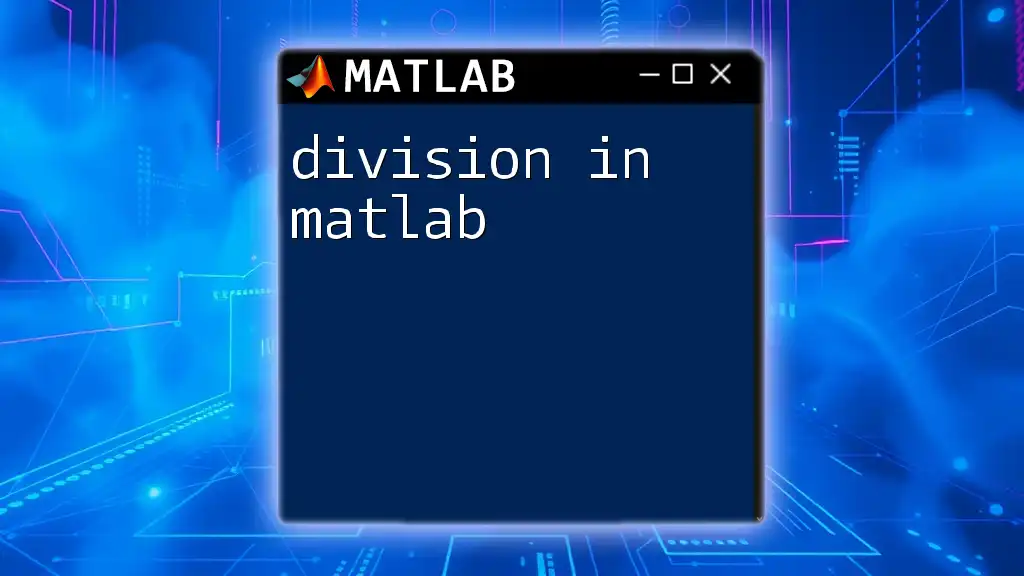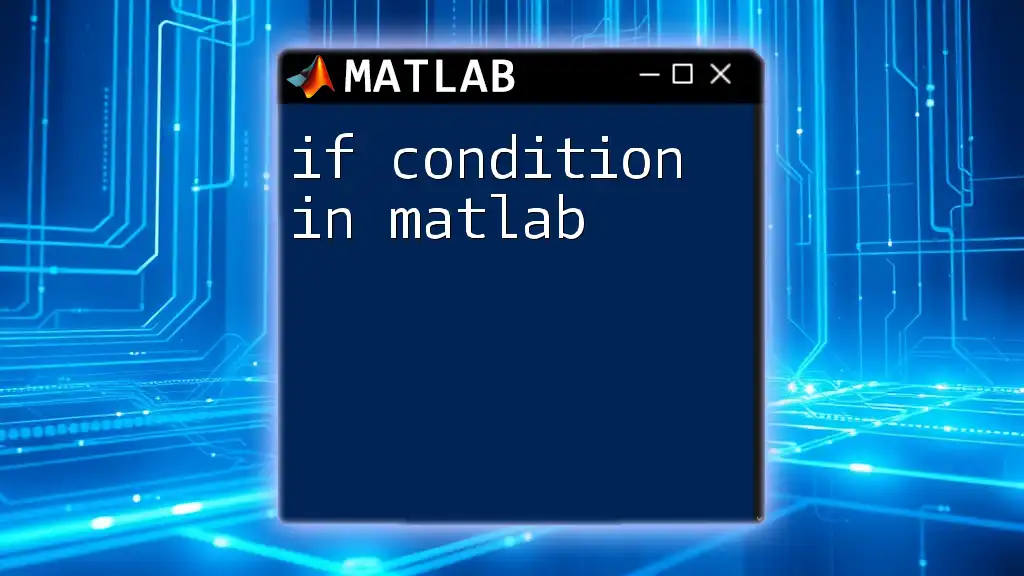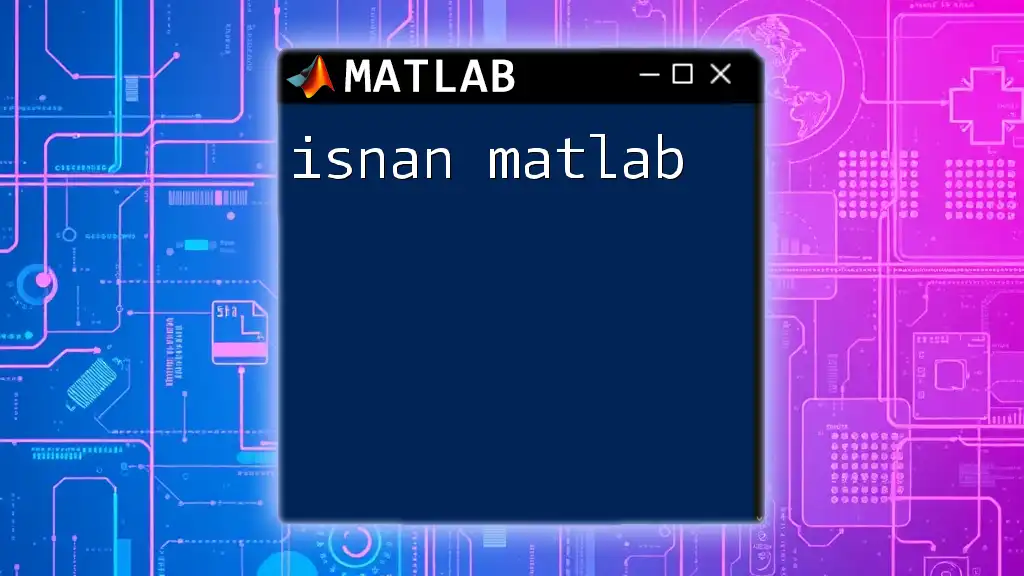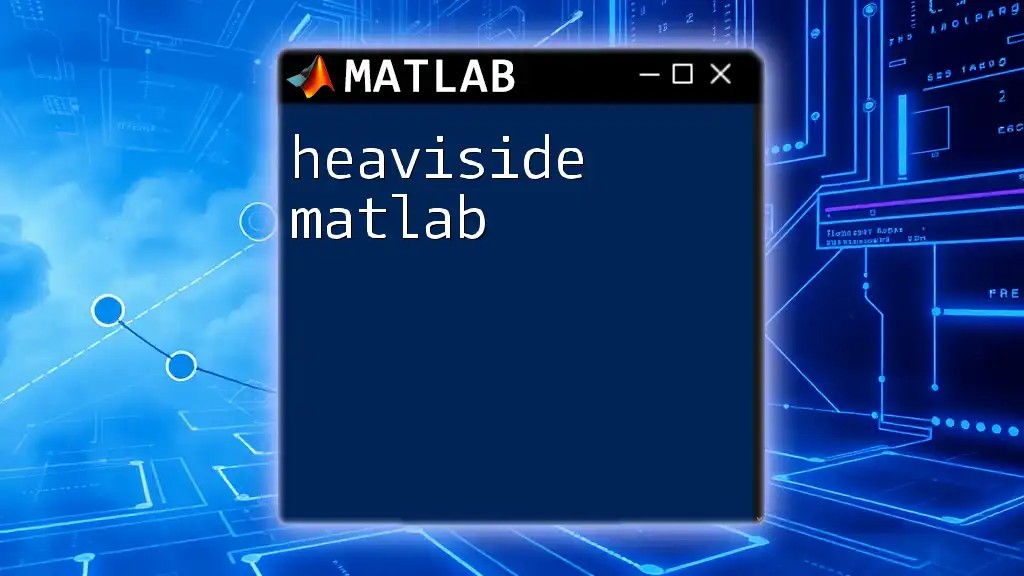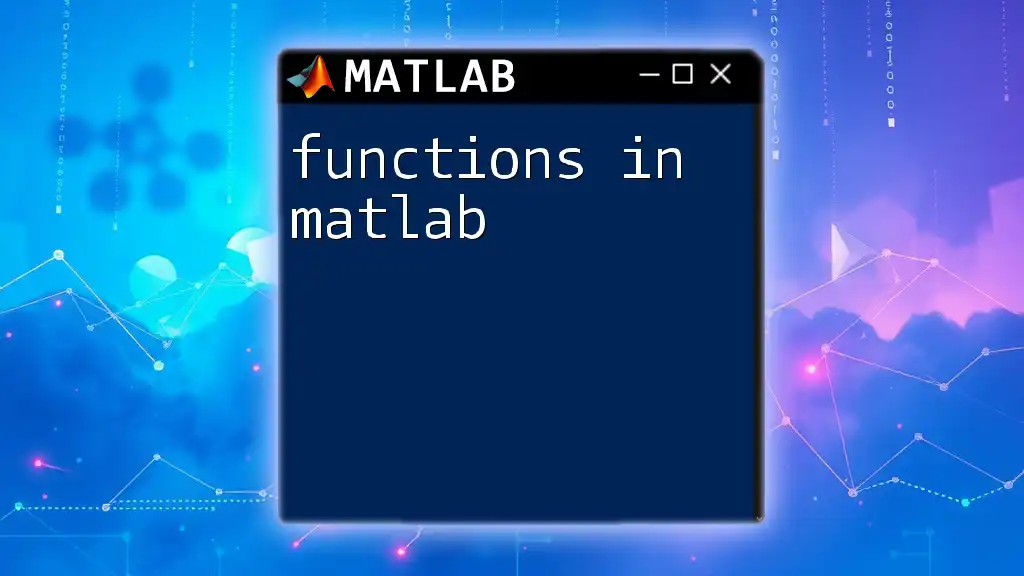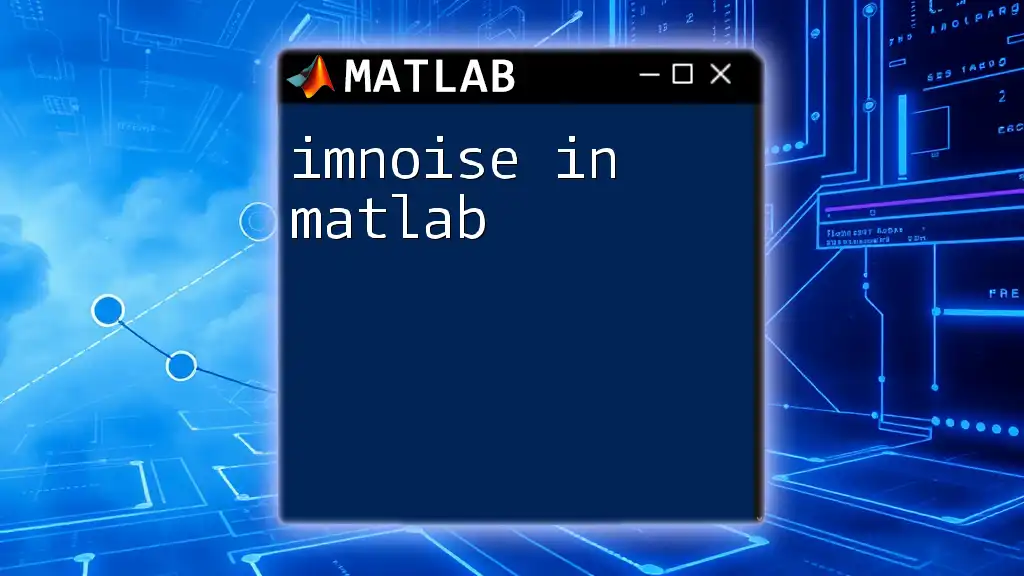In MATLAB, division can be performed using the forward slash (/) for standard division or the dot-slash (./) for element-wise division of arrays.
% Standard division
result = 10 / 2; % result will be 5
% Element-wise division
A = [1, 2, 3];
B = [4, 5, 6];
C = A ./ B; % C will be [0.25, 0.4, 0.5]
Understanding Division in MATLAB
What is Division?
Division is a basic arithmetic operation that allows us to find out how many times one number is contained within another. In programming, division has particular implementations that need to be understood in relation to data structures like scalars and matrices. In MATLAB, division operations can significantly enhance mathematical modeling and data analysis tasks.
Types of Division in MATLAB
MATLAB offers various types of division tailored to different use cases, particularly scalar division and matrix division. Understanding these distinctions is essential for effective programming.
Scalar Division
Scalar division occurs when you divide one number by another. This can be done seamlessly both when operating on single numbers and when applying a division operation across arrays through broadcasting.
Basic Scalar Division
The most straightforward example of division in MATLAB is scalar division. The syntax is:
result = a / b
Consider the following example where you perform basic division:
a = 10;
b = 2;
result = a / b; % result is 5
In this case, dividing 10 by 2 yields a result of 5.
Broadcasting and Scalar Division
MATLAB can also handle scalar division with arrays. When a scalar is divided by an array, each element of the array is divided by that scalar. This feature is known as broadcasting.
For example:
A = [2, 4, 6; 8, 10, 12];
result = A / 2; % Each element divided by 2
In this example, every element in the matrix `A` is divided by 2, resulting in a new matrix.
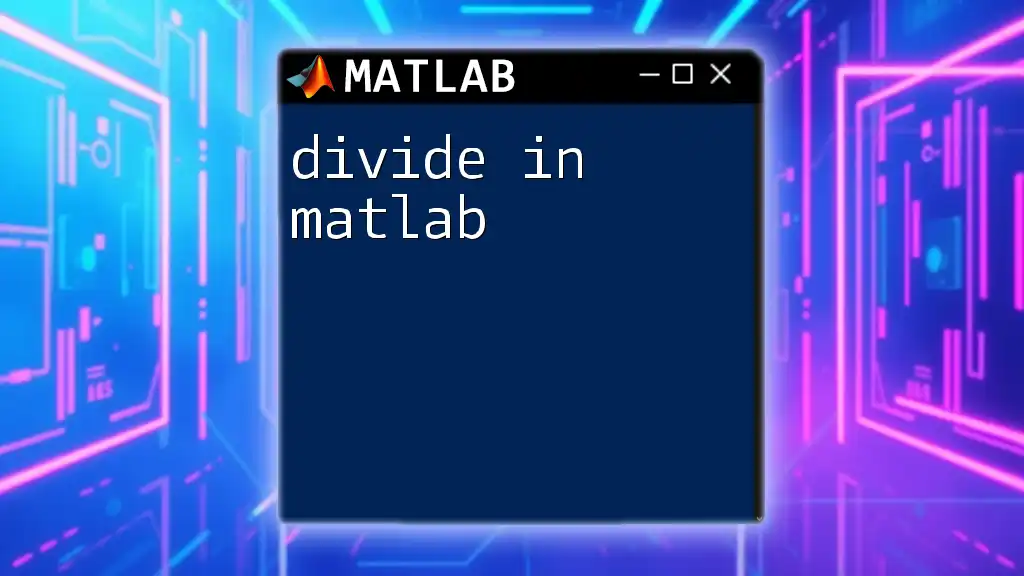
Matrix Division in MATLAB
Left Division (Backslash)
Left division is a specialized operation primarily used to solve linear equations. The syntax for left division is:
x = A \ b
When we want to solve a system of linear equations like Ax = b, we can use left division as shown in the following example:
A = [3, 2; 1, 4];
b = [5; 6];
x = A \ b; % returns the solution to Ax = b
Here, MATLAB determines `x`, which satisfies the equation. This operation is fundamental in many applications, including engineering and physics simulations.
Right Division (Forward Slash)
Right division is used differently as it essentially computes the `b / A` operation, typically used for solving equations in the form of xA = b. The syntax is:
x = b / A
Consider the following example:
A = [1, 2; 3, 4];
b = [5, 6];
x = b / A; % returns the solution to xA = b
Understanding when to use left vs. right division can clarify the computational process for complex matrix calculations.
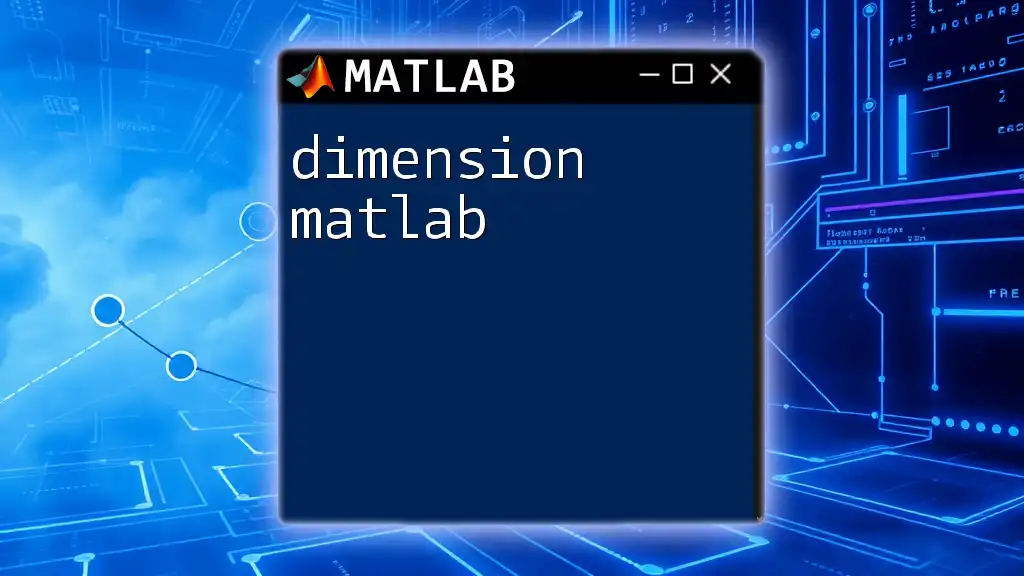
Important Considerations in Division
Matrix Dimensions
When performing division operations, MATLAB requires that matrices are conformable—that is, they must have dimensions that make the operation valid. For instance, attempting to divide two matrices of incompatible sizes will lead to an error.
Consider this example:
A = [1, 2; 3, 4];
b = [5, 6, 7]; % This will cause an error
Attempting to compute `A \ b` would result in a dimension mismatch error.
Handling Singular Matrices
Dividing by a singular matrix (a matrix that does not have an inverse) can also pose challenges. When a matrix is singular, MATLAB will issue warnings or errors during division.
For example:
A = [1, 2; 2, 4]; % Singular matrix
b = [5; 10];
x = A \ b; % May lead to warnings or failures
Understanding the characteristics of matrices is crucial for successful coding in MATLAB.

Applications of Division in MATLAB
Data Processing
In many data analysis situations, division becomes an essential component for computations like calculating averages and normalization. For instance, if you want to compute the average of a dataset, you can use:
data = [100, 200, 300];
average = sum(data) / length(data); % Calculate average
This snippet demonstrates a common application of division in data handling.
Engineering and Physics Simulations
Division is frequently used in simulations to calculate various quantities, such as speed. The formula for speed is distance over time, which can be expressed in MATLAB as follows:
distance = 100; % meters
time = 20; % seconds
speed = distance / time; % meters per second
This example shows how division can have real-world implications in disciplines like physics and engineering.

Best Practices for Division in MATLAB
Vectorization
Vectorization is a powerful concept in MATLAB programming that allows you to write more concise and efficient code. Instead of iterating through elements of an array in a loop, you can use vectorized operations. For instance:
A = [1, 2, 3];
B = A / 2; % Vectorized division
This improves performance significantly, especially with large datasets.
Error Handling
When working with divisions, it's critical to anticipate errors, particularly when dealing with matrices. Utilizing `try-catch` statements allows for better management of potential issues. For example:
try
x = A \ b;
catch ME
disp('Error in division:');
disp(ME.message);
end
By handling exceptions gracefully, you can provide your programs with greater robustness, reducing the chances of crashing due to unexpected input.

Conclusion
Understanding division in MATLAB is fundamental for engaging with various mathematical computations and data analysis effectively. By mastering scalar and matrix division, as well as considering best practices like error handling and vectorization, you can significantly enhance your programming prowess. Whether you're tackling a simple average calculation or a complex engineering simulation, proper implementation of division in MATLAB can lead to accurate and efficient results.
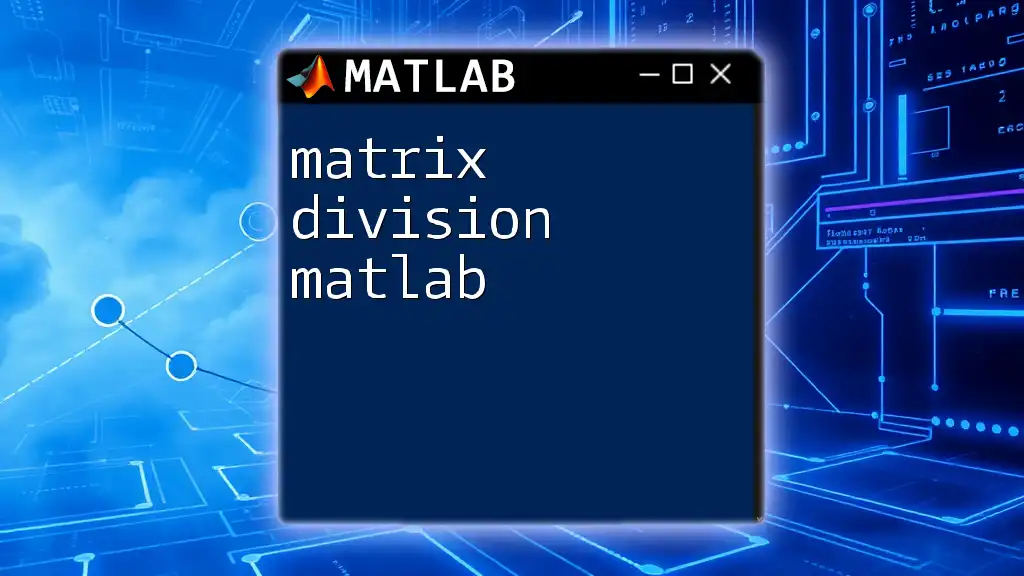
Additional Resources
For further exploration, refer to the official MATLAB documentation to deepen your insights into division operations. You may also want to check out recommended MATLAB books and connect with online communities where you can share experiences and solutions with fellow users.

